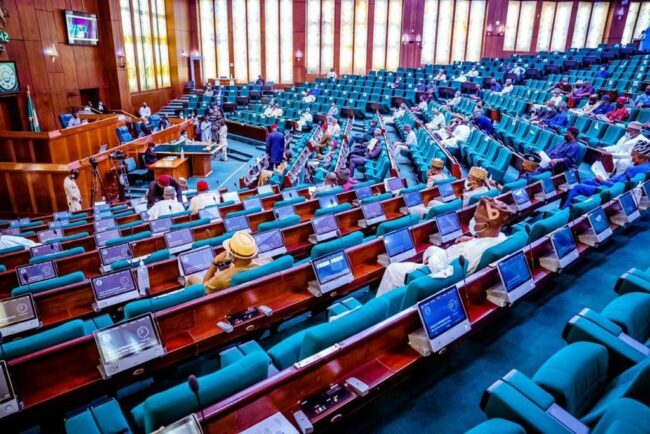
This week’s Gender and Social Inclusion (GESI) tracker focuses on the issues of sexual harassment in tertiary institutions.

The Motion
In the House of Representatives, Rep. Francis Ejiroghene Waive (APC, Delta) moved a motion for the reconsideration of the bill for an act to prevent, prohibit, and redress sexual harassment of students in tertiary educational institutions. Notably, this bill had previously gone through both the 8th and 9th assemblies before resurfacing in the 10th. Rep. Waive highlighted that the bill had been passed by the previous assembly and submitted to the president for assent but no communication of assent or rejection was received before the end of the assembly. As a result, he urged the House to recommit the bill to the committee of the whole for further consideration.

Sexual harassment in tertiary institutions
Sexual harassment in Nigerian tertiary institutions remains a pervasive issue, undermining the safety and academic freedom of students, particularly women. Reports highlight a pattern of abuse where lecturers and administrative staff exploit their positions of power, demanding sexual favors in exchange for grades, admissions, or other academic privileges. High-profile cases such as those exposed by BBC’s 2019 Sex for Grades documentary brought widespread attention to this problem, sparking public outrage and leading to increased calls for institutional reforms. The issue underscored the need for stronger accountability mechanisms, victim support systems, and a cultural shift within academic institutions across Nigeria. In 2020, the sexual harassment in tertiary institutions prohibition bill was passed by the senate amid reactions from the Academic Staff Union of Universities (ASUU) who opposed its passage stating that:
- The bill violates all known global norms and legal principles in the sense that universities were autonomous bodies and can regulate their own affairs including issues of misconduct with clearly articulated and appropriate redress mechanism.
- The bill is discriminatory, selective and spiteful, impulsive and lacks logic as it attacks the character of persons in tertiary institutions as if the act of sexual harassment is peculiar to tertiary institutions alone.
- The bill failed to take into cognizance the provisions of other extant laws with specific references to the criminal code, the penal code, child rights act, trafficking in persons (prohibition) enforcement and administration law, and the violence against persons (prohibition) act, which adequately deals with issues of sexual offences
However, the senate decided to pass the bill because it will fulfill part of the international obligation of the federal government undertaken through the ratification of the United Nations Convention on the Elimination of All Forms of Discrimination Against Women (CEDAW), the African Charter on Human Rights of Women in Africa and the African Charter on the Rights and Welfare of the Child, among others. But the bill was not assented to by President Muhammadu Buhari before the expiration of his tenure.

What the bill will achieve
The bill recognizes the urgent need for a comprehensive policy that holds perpetrators accountable while also providing support and protection for victims. Hence, it marks a significant step towards safeguarding the rights and dignity of students in Nigeria, especially with the alarming rates of sexual harassment reported in tertiary educational institutions. The establishment of clear guidelines and strategies to monitor and respond to sexual harassment will empower students to pursue their education free from fear and intimidation. Hence, this bill is not just about legal compliance but represents a paradigm shift in how tertiary educational institutions address gender-based violence, thus fostering a safer, more inclusive learning atmosphere for all students.
GESI implications of the bill
The implications of sexual harassment in Nigerian tertiary institutions have significant and complex ramifications for GESI. Sexual harassment disproportionately impacts female students, exacerbating gender inequality by negatively affecting their academic performance, self-esteem, and future career opportunities. Women, particularly those from marginalized communities are the most vulnerable due to entrenched power dynamics that favor male lecturers.
Interventions focused on GESI are essential to addressing this issue, ensuring that all marginalized groups have equitable access to educational opportunities free from harassment. Such interventions foster an inclusive environment that safeguards the rights of every student.



